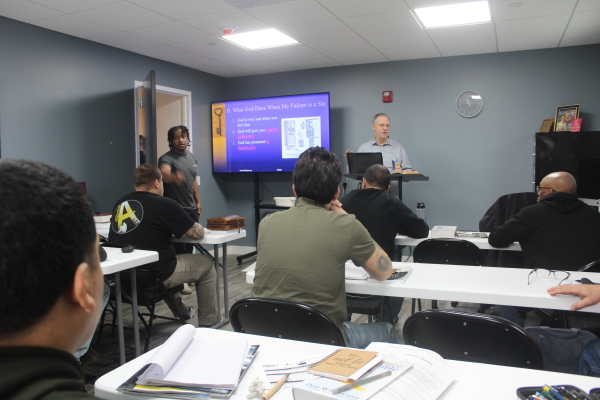House committee opens antisemitism probe into Harvard, Penn, MIT after hearing

A Republican-led U.S. House of Representatives committee has opened an investigation into Harvard University, the University of Pennsylvania and the Massachusetts Institute of Technology, expressing dissatisfaction with administrators' answers this week about their response to antisemitism on campus.
The House Committee on Education and the Workforce intends to investigate each university's learning environments and disciplinary procedures, which will include document requests and subpoenas if necessary.
After Hamas' Oct. 7 attack against Israel killed 1,200 people, multiple college campuses have faced criticism for their responses to antisemitism from students and faculty members.
In a Thursday statement, Chairwoman Virginia Foxx, R-N.C., criticized Harvard President Claudine Gay, MIT President Sally Kornbluth and Penn's President Liz Magill. Foxx stressed that the responses from each president regarding how the university deals with antisemitism were "absolutely unacceptable."
"Committee members have deep concerns with their leadership and their failure to take steps to provide Jewish students the safe learning environment they are due under law," the chairwoman stated.
"The disgusting targeting and harassment of Jewish students is not limited to these institutions, and other universities should expect investigations as well, as their litany of similar failures has not gone unnoticed."
In a Friday statement to The Christian Post, Harvard's director of media relations and communications, Jason Newton, told the outlet that the university looks forward to sharing information with the committee as it conducts its inquiry.
"Harvard's work to combat antisemitism in our community is advancing with the highest commitment and attention from University leaders," Newton stated.
A University of Pennsylvania spokesperson told CP that the university is aware of the investigation and intends to cooperate fully.
A spokesperson for MIT said that the university rejects antisemitism "in all its forms," acknowledging it as a threat that is rising throughout the world. The spokesperson emphasized that MIT cannot let antisemitism "poison our community."
"That is why MIT has stood up a campus-wide initiative, 'Standing Against Hate,' to ensure that antisemitism has no place in our community," the statement continued. "As we continue to undertake this critical effort, MIT will work with the Committee to address its questions."
In a Thursday statement issued by MIT's governing board about the investigation into the school's learning environment, Mark Gorenberg, chair of the corporation, wrote in the statement that he and the executive committee support President Kornbluth.
"The MIT Corporation chose Sally to be our president for her excellent academic leadership, her judgment, her integrity, her moral compass, and her ability to unite our community around MIT's core values," the statement reads.
"She has done excellent work in leading our community, including in addressing antisemitism, Islamophobia, and other forms of hate, all of which we reject utterly at MIT. She has our full and unreserved support," it continued.
During a hearing earlier this week, the university presidents did not directly answer whether calling for the genocide of Jews violated their code of conduct on bullying or harassment. The question came from Rep. Elisa Stefanik, R-N.Y., who asked for a "yes or no" response to the question multiple times during the hearing.
MIT's president responded that she had not heard calls for the genocide of Jews on campus but acknowledged that she had heard calls for "intifada" (resistance or uprising), which Kornbluth said could be considered harassment in certain contexts.
Both Gay and Magill replied that whether calling for the genocide of Jews violated their respective universities' codes of conduct would depend on the context.
"If the speech becomes conduct, it can be harassment," Magill said at one point to Stefanik's question, which clearly surprised the congresswoman.
"'Conduct' meaning committing the act of genocide?" Stefanik asked, stating that the Penn president's response was "unacceptable." The lawmaker asked Magill the question again, and she replied, "it can be harassment."
After the hearing, Magill released an apology video, stating that she understands calls for genocide are "evil, plain and simple."
"There was a moment during yesterday's congressional hearing on antisemitism when I was asked if a call for the genocide of Jewish people on our campus would violate our policies," Magill said in the video.
"In that moment, I was focused on the university's long-standing policies — aligned with the US Constitution — which say that speech alone is not punishable."
As CNN reported Friday, a source familiar with Penn's proceedings informed the outlet that Magill is still president following a Thursday board of trustees meeting. However, a growing list of donors, politicians and business leaders criticized Magill's testimony.
One of the university's prominent donors, Ross Stevens, has threatened to withdraw a $100 million donation to the school in response to the president's answers during the hearing.
Samantha Kamman is a reporter for The Christian Post. She can be reached at: samantha.kamman@christianpost.com. Follow her on Twitter: @Samantha_Kamman






















